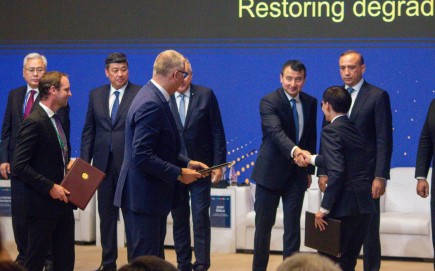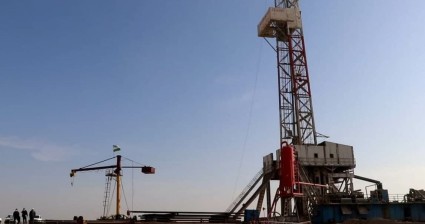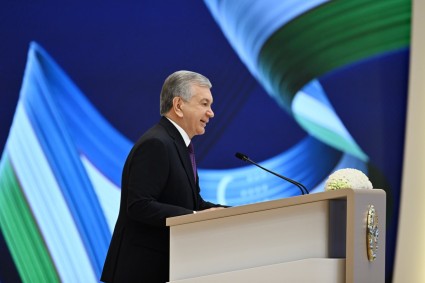The third Central Asia-European Union Economic Forum is taking place in Tashkent today. In his opening remarks, Deputy Prime Minister Jamshid Khodjaev underscored the key areas of cooperation between the two regions: critical raw materials (CRM), green energy, sustainable transport, and digital connectivity.
"Together with the European Union, we are entering a new phase of strategic cooperation in the field of critical raw materials. Memoranda of understanding with Uzbekistan and Kazakhstan allow European companies to step up cooperation with our region in high-tech industries. Our shared goal is to move from simple extraction to local processing, higher-value-added production, and sustainable supply chains, all while fully adhering to high environmental and social standards."
The Deputy PM Kuchkarov also emphasized that Central Asia held the potential to become the EU’s reliable partner not only in securing energy resources but also in making a significant contribution to global decarbonization.
"The concept of a green strategic corridor, which will connect the countries of Central Asia, the Caspian and Black Seas, and Europe, holds great potential. This will strengthen our mutually beneficial energy ties and open up new opportunities in renewable energy, green hydrogen, and low-carbon industrial projects," emphasized Jamshid Khodjayev.
Let's move from visions to roadmaps, to specific projects, joint ventures, and cross-border value chains. Let's connect our businesses, our regions, and our innovations much more closely. Together, we are not just participants in the process—we are the architects of the future we are creating, the Deputy PM concluded
In his speech, EU Commissioner for International Partnerships Jozef Sikela focused on two key pillars of cooperation between the two regions: trade and infrastructure.
"The EU is proud to be Central Asia's second-largest trading partner, its largest investor, and its main development partner. Last year, trade between our regions grew by almost 3%. Some might say that's not bad, but for me, that's not enough. Therefore, we need to do more. We expect this upward trend to continue as our Enhanced Partnership and Cooperation Agreements (EPCAs) enter into force. These agreements promote mutual trade and investment, improve market access, spur reforms, and provide the legal certainty businesses need to successfully operate in global markets," he stated.
Regarding infrastructure, the Commissioner recalled that, under the Global Gateway strategy, the EU is mobilizing a €12 billion funding package for Central Asia for transport connectivity, critical raw materials, digital connectivity, and green energy.
"We are currently identifying and implementing specific investment projects. When it comes to critical raw materials, we all know that the greatest value for a country is created through processing, not just extraction. Through the Global Gateway, we want to support this value creation locally, while helping the EU diversify its supply sources. What does this mean in practice? It means investing in critical infrastructure, such as transport and energy, to reduce the costs and carbon footprint of metal exports. It means providing regulatory support to stabilize markets and attract foreign investment. It means training the local workforce. It means creating local jobs and developing value chains. It means upholding the highest environmental, social, and governance standards," said Jozef Sikela.
The European Commissioner noted: "The EU has benefited enormously from the free movement of goods, services, and people across our continent. I know that Central Asia is moving quickly and making great efforts in this direction. But for us, reaching the current level did not happen overnight. This required significant investment in institutions, trust building, and economic coordination. We are ready to share our experience with Central Asia."
New Joint Projects
The forum's opening ceremony featured signing of a number of new projects between Central Asian countries and the European Union.
The first of these is the Aral Sea project. It will mobilize €48 million to promote the socio-economic and environmental sustainability of the region through the restoration of degraded lands.
The Data for CRM project is expected to strengthen the capacity of Central Asian countries to manage geodata for the development of critical raw materials.
As the EU Ambassador to Kazakhstan Aleška SimkiƒЗ later noted, "We often hear from small mining companies in the EU that their problem is the lack of reliable geological data. Many are still working with Soviet maps. And that's why it's important to determine exactly what's in the soil of Central Asia and the quality of these materials."
Secure CRM aims to strengthen the value chains of critical raw materials in Central Asia. The project aims to improve governance and transparency throughout the entire raw materials supply chain.
Grow CRM will support the development of joint projects in the field of critical raw materials in Central Asia. The project will support the implementation of subsoil use legislation.
Two regional projects signed at the forum will focus on improving border management and combating cross-border drug trafficking. They will be implemented within the framework of the Border Management Programme in Central Asia (BOMCA) and the Central Asia Drug Action Programme (CADAP).













